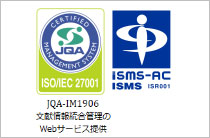ホームIMICライブラリMMWR抄訳2016年(Vol.65)CDC Grand Rounds:がんの予防とコン・・・
2016/11/25Vol. 65 / No. 46
MMWR65(46):1291-1294
CDC Grand Rounds: Family History and Genomics as Tools for Cancer Prevention and Control
CDC Grand Rounds:がんの予防とコントロールのツールとしての家族歴およびゲノミクス
遺伝子検査の進歩により、家族歴および発がん性遺伝性突然変異の検査からがんの予防が可能となり、熟練した専門医による家族歴の収集と評価により遺伝性がん症候群リスクの高い患者や家族が特定され、遺伝子カウンセリングにより発がんリスクを低下させる機会が与えられるようになっている。ここでは遺伝性の高い2つのがん症候群についてまとめる。1)遺伝性乳がんおよび卵巣がん症候群(HBOC)はBRCA1およびBRCA2遺伝子変異が関与しており、アメリカではBRCA1またはBRCA2の変異が500人に1人の割合で認められている。これらの変異は毎年、乳がんの約3%、卵巣がんの約10%に認められ、突然変異のキャリアーは一般女性に比べ70歳までに乳がんおよび卵巣がんを発症するリスクが高い(一般女性の乳がん:12/100、卵巣がん:1/100、キャリアーの乳癌:65/100、卵巣がん:39/100)。本人または母方/父方の近親者にBRCA1またはBRCA2変異を認める場合、50歳までに乳がんを発症しやすく、また、アシュケナージ系ユダヤ人または東ヨーロッパ出身者に突然変異を多く認める(約40人に1人)。United States Preventive Services Task ForceはHBOCの家族歴が疑われる場合はスクリーニングを推奨しており、認める場合は遺伝子カウンセリングおよび遺伝子検査を受けるべきとしている。リスクを軽減するためにはタモキシフェン、ラロキシフェンなどの化学的予防またはリスク軽減目的の乳房切除または卵巣摘出術などの介入が行われる。2)リンチ症候群はDNAミスマッチ修復遺伝子の突然変異が関与するものであり、大腸がん、子宮内膜および卵巣がんリスクが高い。リンチ症候群は大腸がんの1~3%に認められ、発がんリスクは一般集団にて4/100、キャリアーで40/100である。Evaluation of Genomic Applications in Practice and Preventionのワーキンググループは、大腸がんの新規例の近親者に対しリンチ症候群のスクリーニング検査を推奨している。CDCは家族歴によるリスクの評価、遺伝子カウンセリングおよび遺伝性がん症候群の検査に関する勧告をまとめており、ミシガン州では2003年よりMichigan Cancer Genomics Programとして遺伝性がんの発症率および死亡率抑制に取り組んでいる。また、乳がん、卵巣がんおよびBRCA1変異の家族歴があるLindsay Avnerが設立したNPO団体Bright Pinkは若い女性における乳がんおよび卵巣がんの予防、早期発見を目的として活動を展開している。
References
- Moyer VA; US Preventive Services Task Force. Risk assessment, genetic counseling, and genetic testing for BRCA-related cancer in women: US Preventive Services Task Force recommendation statement. Ann Intern Med 2014;160:271–81.
- Petrucelli N, Daly MB, Feldman GL. BRCA1 and BRCA2 hereditary breast and ovarian cancer. In: Pagon RA, Adam MP, Ardinger HH, et al., eds. GeneReviews [Internet]. Seattle, WA: University of Washington, Seattle; 2013. <http://www.ncbi.nlm.nih.gov/books/NBK1247/>
- Nelson HD, Fu R, Goddard K, et al. Risk assessment, genetic counseling, and genetic testing for BRCA-related cancer: systematic review to update the U.S. Preventive Services Task Force recommendation evidence synthesis no. 101. Agency for Healthcare Research and Quality publication no. 12–05164-EF-1. Rockville, MD: Agency for Healthcare Research and Quality; 2013.
- Antoniou A, Pharoah PD, Narod S, et al. Average risks of breast and ovarian cancer associated with BRCA1 or BRCA2 mutations detected in case series unselected for family history: a combined analysis of 22 studies. Am J Hum Genet 2003;72:1117–30. <http://dx.doi.org/10.1086/375033>
- Chen S, Parmigiani G. Meta-analysis of BRCA1 and BRCA2 penetrance. J Clin Oncol 2007;25:1329–33. <http://dx.doi.org/10.1200/JCO.2006.09.1066>
- Moyer VA; US Preventive Services Task Force. Medications for risk reduction of primary breast cancer in women: US Preventive Services Task Force recommendation statement. Ann Intern Med 2013;159:698–708.
- Kohlmann W, Gruber SB. Lynch syndrome. In: Pagon RA, Adam MP, Ardinger HH, et al., eds. GeneReviews [Internet]. Seattle WA: University of Washington, Seattle; 2014. <http://www.ncbi.nlm.nih.gov/books/NBK1211/>
- Kaz AM, Brentnall TA. Genetic testing for colon cancer. Nat Clin Pract Gastroenterol Hepatol 2006;3:670–9. <http://dx.doi.org/10.1038/ncpgasthep0663>
- Palomaki GE, McClain MR, Melillo S, Hampel HL, Thibodeau SN. EGAPP supplementary evidence review: DNA testing strategies aimed at reducing morbidity and mortality from Lynch syndrome. Genet Med 2009;11:42–65. <http://dx.doi.org/10.1097/GIM.0b013e31818fa2db>
- Evaluation of Genomic Applications in Practice and Prevention (EGAPP) Working Group. Recommendations from the EGAPP Working Group: genetic testing strategies in newly diagnosed individuals with colorectal cancer aimed at reducing morbidity and mortality from Lynch syndrome in relatives. Genet Med 2009;11:35–41. <http://dx.doi.org/10.1097/GIM.0b013e31818fa2ff>
- Trivers KF, Rodriguez JL, Cox SL, Crane BE, Duquette D. The activities and impact of state programs to address hereditary breast and ovarian cancer, 2011–2014. Healthcare 2015;3:948–63. <http://dx.doi.org/10.3390/healthcare3040948>
- Dotson WD, Douglas MP, Kolor K, et al. Prioritizing genomic applications for action by level of evidence: a horizon-scanning method. Clin Pharmacol Ther 2014;95:394–402. <http://dx.doi.org/10.1038/clpt.2013.226>
- Khoury MJ, Bowen MS, Burke W, et al. Current priorities for public health practice in addressing the role of human genomics in improving population health. Am J Prev Med 2011;40:486–93. <http://dx.doi.org/10.1016/j.amepre.2010.12.009>
- Khoury MJ, Galea S. Will precision medicine improve population health? JAMA 2016;316:1357–8. <http://dx.doi.org/10.1001/jama.2016.12260>
- McCarthy AM, Bristol M, Domchek SM, et al. Health care segregation, physician recommendation, and racial disparities in BRCA1/2 testing among women with breast cancer. J Clin Oncol 2016;34:2610–8. <http://dx.doi.org/10.1200/JCO.2015.66.0019>
Copyright © 2013 International Medical Information Center. All Rights Reserved.












